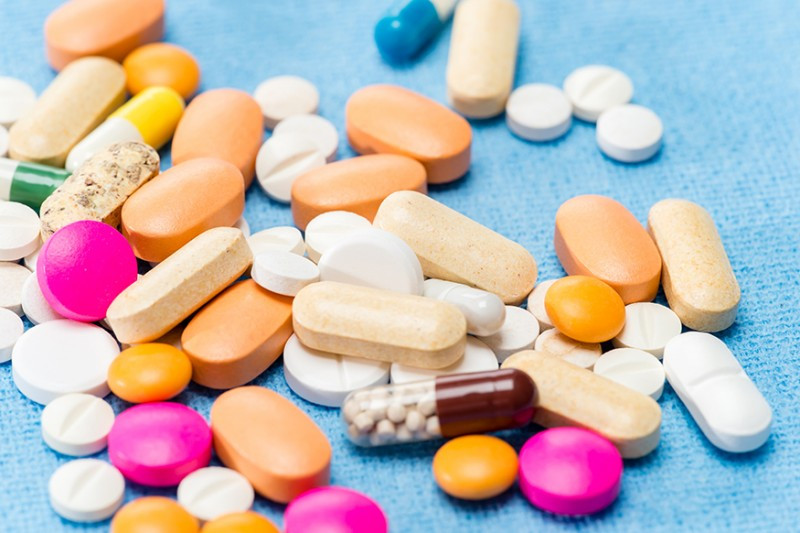It has long been said, mostly in jest, that the way to a man's heart is through his stomach. Let's expand on that a bit, and get real about it. The way to a man's or a woman's heart, immune system, skin, brain – whatever bodily system or organ you wish to name – is through the stomach. That's because of the vital role our gut bacteria play in affecting our overall health, and this is where probiotics and prebiotics go to work on our behalf. You've probably heard of probiotics, although the mention of prebiotics might have you scratching your head. Indeed, they are not the same thing or even different versions of similar things, but they do play a complementary role in enhancing the bacterial health of our gut, and in so doing, bolstering the health of our entire body. So what are probiotics really? Per prevention.com, emerging health science has shown that our gut's bacterial composition is a key factor behind not only improved digestion, the regulation of blood-sugar levels, and enhanced frame of mind but also in the reduction of bowel inflammation and bad-cholesterol levels. Research is ongoing on other possible health benefits related to bacterial makeup of the gut, although word is already out – the sale of probiotic-fortified foods in grocery markets is on the rise, as are consumables packed with prebiotics.
You Mean, We Want Bacteria in Our Guts?
Exactly, but like it is with cholesterol, there is good bacteria and bad bacteria. The more the former outnumbers the latter, and for a longer period of time, the better we will feel. Our colon is occupied by trillions of bacteria, per vitals.lifehacker.com, and these microscopic critters consume our waste, in the process manufacturing vitamin K while protecting us from infection by harmful microbes and keeping our immune system operating properly. That's right – our food eventually becomes food for these tiny little creatures.Probiotics vs. Prebiotics
OK, it's time to end the suspense and explain the difference between probiotics and prebiotics. In short, probiotics are the good bacteria, and we have the ability to add them to the mix either through consumables that naturally contain them – such as yogurt, sauerkraut, kombucha, and kimchi – or via nutritional supplements. These bacteria form a micro-ecosystem, known as a microbiome, which consists of almost 1,000 different bacteria species. Keeping all those microscopic beings in balance is the real trick here, and there are two approaches to accomplishing that. One is by supplementing our digestive e system with living microbes (probiotics) and supplying them with the foods they like to consume (prebiotics), per mayoclinic.org. More specifically, prebiotics, which are not living organisms (as probiotics are) are specialized plant fibers (such as asparagus and yams) that essentially fertilize the healthy gut bacteria, providing the stimulus to help them grow. Prebiotics are actually found in a fairly wide assortment of fruits and vegetables, in particular ones that are laced with complex carbohydrates, which can't be digested in the body, which allows them to travel through the digestive system and remain intact so as to be consumed by bacteria and other microbes. Once the prebiotics are gobbled up by probiotics, per prevention.com, they are fermented into short-chain fatty acids, which are the main source of all those bodily benefits described earlier.A Few Pointers on Microbiota-driven Lifestyle
Per pcrm.org, here are several things to be aware of when it comes to probiotics, prebiotics, and maintaining or reshaping the healthy level of our gut bacteria. Keep in mind that nutrition is directly involved in determining the makeup and metabolic activity of gut bacteria; good or bad, your choice to a big degree:- Diet choice. Your choice of diet goes a long way in determining the state of your gut bacteria and therefore your overall health. A healthy diet can bolster microbiota health and genetic diversity, which in turn helps in treating or preventing such conditions as obesity, diabetes, heart disease, and inflammation. An example of a good diet in that regard – one that is rich in fiber and is plant-based. In fact, a total-vegetarian diet that promotes the growth of healthy bacteria can help with weight and blood pressure control and reversing the effects of diabetes. Bad? A diet with an overemphasis on animal protein.
- Focus on fiber. High-fiber foods feed healthy bacteria, leading to stronger immune function, diminished inflammation and chronic disease, and regulate mood and behavior.
- Probiotics. These live organisms – bacteria or yeast – found in fermented foods or supplements occupy the gut and work to boost health. Other dietary sources include miso, tempeh, soy sauce, and water kefir.
- Prebiotics. These provide dietary fiber that stimulate healthy bacteria growth and produce health benefits. Five to eight grams of plant-based prebiotics a day is suggested, but you pretty much have to find it in certain plant foods as it is not readily available in supplement form, although supplements known for their dietary fiber can probably fill that role. Other good sources include chicory root, raw dandelion greens, onions, garlic spinach, bananas, oats, and leeks.
- Foods to skip. Try to avoid red meat, dairy products rich in fat, and fried foods – for starters. Sausage links and candy bars aren't your friends, either.
- Watch the antibiotics. Antibiotics have for many years been used to treat many types of diseases and illnesses, leading to a reduction of healthy bacteria – and, as a result, medical science has been adversely affected. Along with that, antibiotics are losing their effectiveness. Protecting your own gut health means steering clear of antibiotic use unless it's absolutely necessary, and that should involve an open discussion between you and the doctor or other health professional involved.

